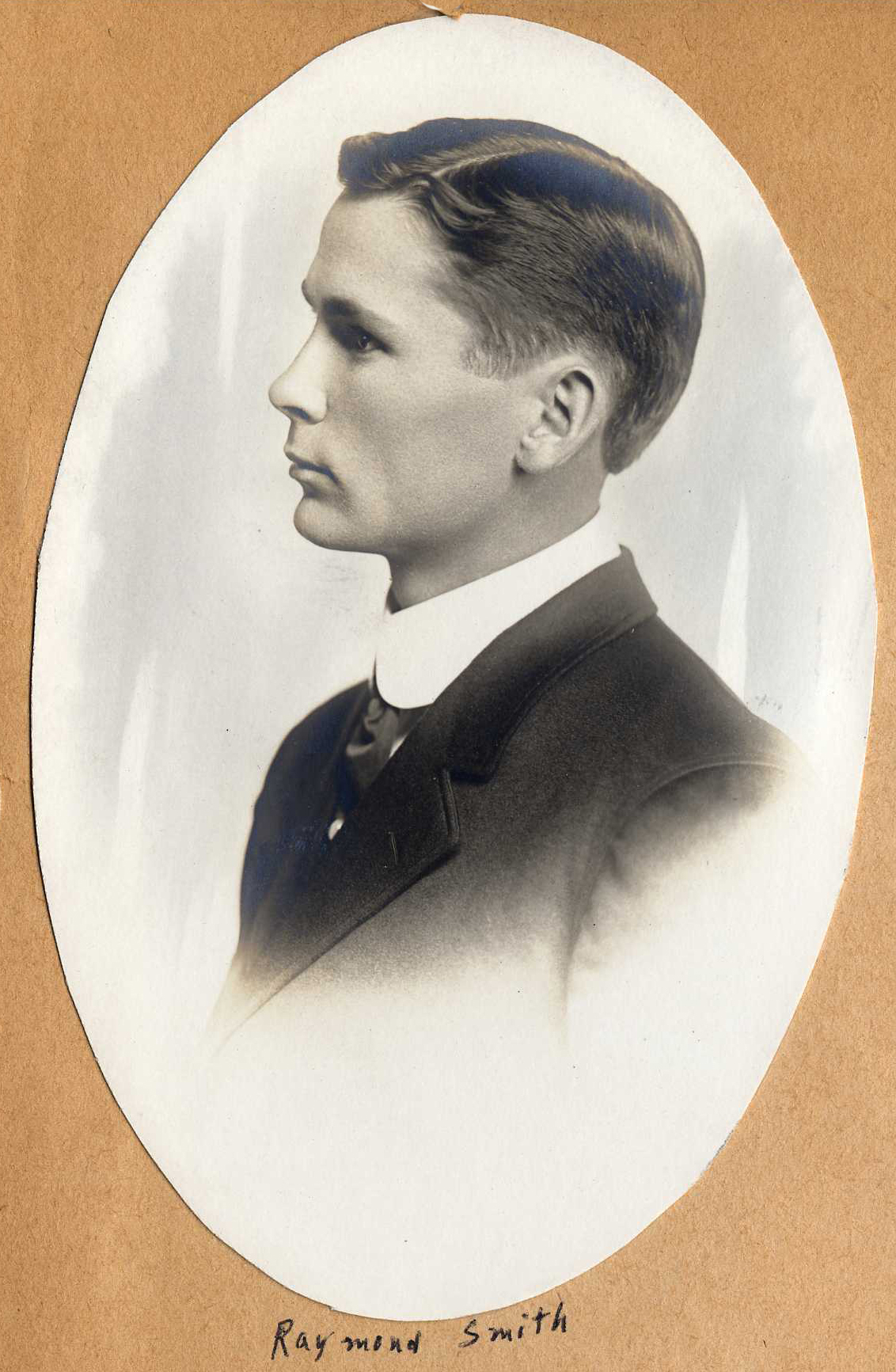This week John Wire, Jr. brought in one of his grandmother’s (Louise) scrapbooks as I had requested information about the confiscation of a large quantity of illegal liquor by his sheriff father, John P. Wire, Sr. After scanning that very interesting 1942 picture, I couldn’t resist looking through the scrapbook for other items we might add to the library archive. What treasures it contains!
There were pictures of the 1912 Kinsley High School graduating class of which John’s father was a member. Among them was a picture of Raymond Smith, the man who wrote the letter I quoted from in the last two posts.
In the September 20, 1917 Graphic, I found a little more about Raymond’s entry into service and the support he was given by his friends in the Methodist Sunday School class.
“A Farewell Party. A bunch of the M.E.A. Sunday-school boys met at O. E. Smith’s residence Tuesday night and routed Raymond Smith out of bed and gave him a farewell party, as he left the next day for Camp Funston. The boys gave Raymond a treat to some fine watermelon and presented him with a new testament which pleased him very much. The boys left at a late hour and wished Raymond all the good luck possible. Raymond thanked the boys very much for remembering him, and promised to honorably represent the M.E.A. Sunday-school class in whatever branch of the army service he is assigned to.”
Six weeks later, the November 8th Graphic reported:
“Monday evening the Senior Young People’s Department of the Methodist Sunday school gave a “Soldiers All Party” in the church parlors. Letters from William Timken, Raymond Smith, Kathleen Riley, Ruth Craft, and Glenna Eslinger were read. Then the young people, about seventy-five in number, wrote chain letters to fourteen absentees, most of whom are in the army. Patriotic music and conversation of war topics closed the evening. The idea of service was uppermost in the entire program.”
Note that the young ladies mention had left Kinsley to attend nursing school in Colorado (Kathleen Riley and Ruth Craft) and to become a Methodist deaconess in Detroit (Glenna Eslinger). Glenna served as a pastor’s assistant, a role “deemed gender appropriate by church and state”.

